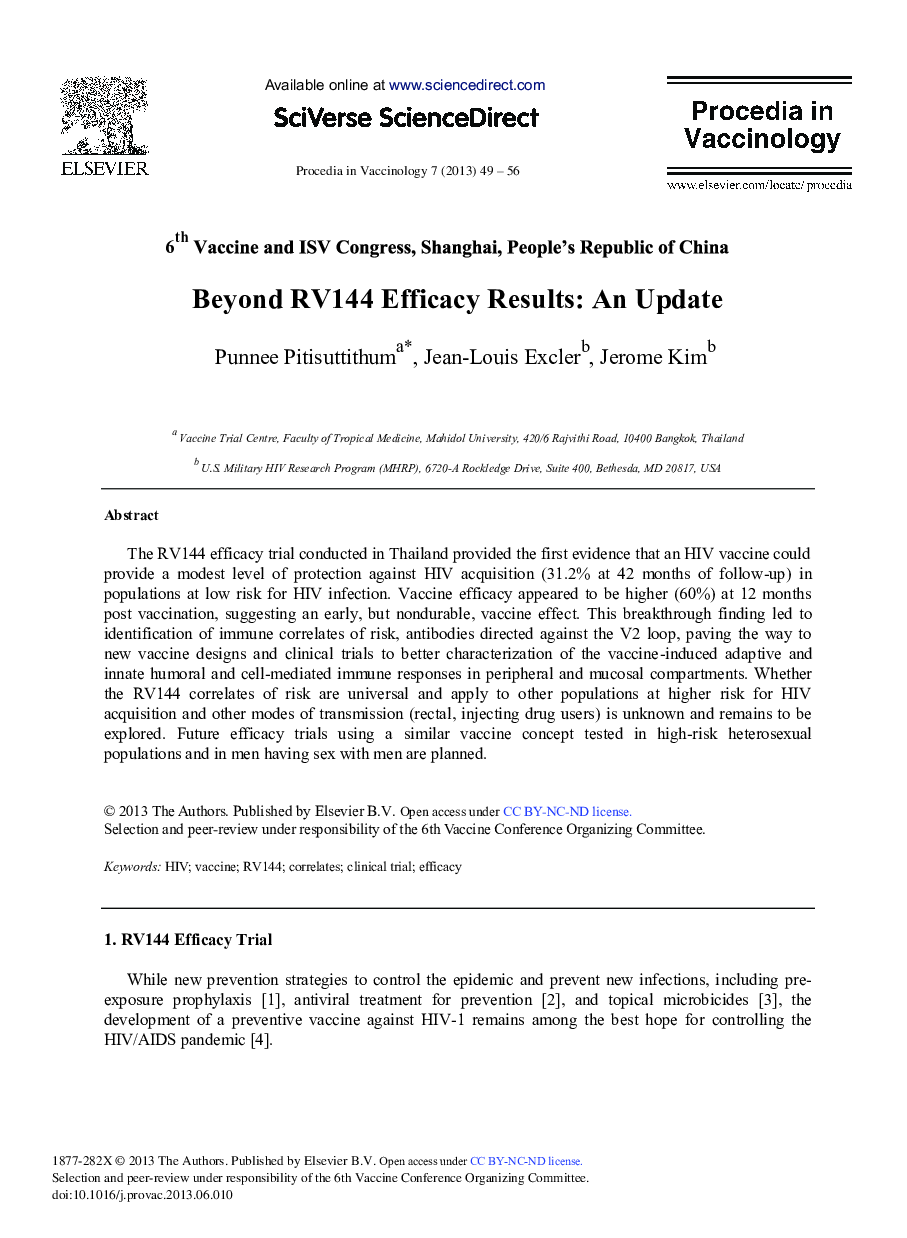| Article ID | Journal | Published Year | Pages | File Type |
|---|---|---|---|---|
| 2473839 | Procedia in Vaccinology | 2013 | 8 Pages |
The RV144 efficacy trial conducted in Thailand provided the first evidence that an HIV vaccine could provide a modest level of protection against HIV acquisition (31.2% at 42 months of follow-up) in populations at low risk for HIV infection. Vaccine efficacy appeared to be higher (60%) at 12 months post vaccination, suggesting an early, but nondurable, vaccine effect. This breakthrough finding led to identification of immune correlates of risk, antibodies directed against the V2 loop, paving the way to new vaccine designs and clinical trials to better characterization of the vaccine-induced adaptive and innate humoral and cell-mediated immune responses in peripheral and mucosal compartments. Whether the RV144 correlates of risk are universal and apply to other populations at higher risk for HIV acquisition and other modes of transmission (rectal, injecting drug users) is unknown and remains to be explored. Future efficacy trials using a similar vaccine concept tested in high-risk heterosexual populations and in men having sex with men are planned.
